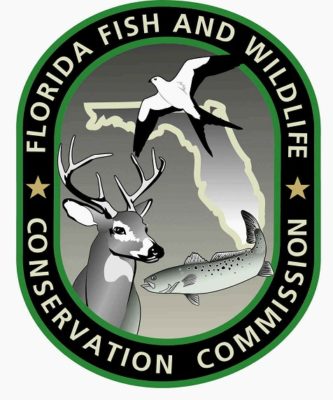FWC Updates Management Efforts as Number of Nesting Eagles Continues to Increase

 The bald eagle is one of the great conservation success stories. The bald eagle was removed from state listing in 2008 and since that time, the number of nesting eagles in Florida has continued to increase. With a healthy eagle population, the Florida Fish and Wildlife Conservation Commission (FWC) is updating management efforts and conservation actions.
The bald eagle is one of the great conservation success stories. The bald eagle was removed from state listing in 2008 and since that time, the number of nesting eagles in Florida has continued to increase. With a healthy eagle population, the Florida Fish and Wildlife Conservation Commission (FWC) is updating management efforts and conservation actions.
Historically, bald eagles have faced many challenges. Habitat destruction, shooting, poisoning and pesticides greatly reduced eagle numbers in the United States. The Florida eagle population has soared since the FWC began conducting nest surveys in 1972.
“That first year there were only 88 bald eagle nests documented in the state,” said Dr. Brad Gruver, leader of the FWC’s Species Conservation Planning Section. “Thanks to conservation efforts of the FWC, the U.S. Fish and Wildlife Service and other partners, there are now an estimated 1,500 nesting pairs in Florida. Florida has more nesting eagles than any other state except Alaska and Minnesota.”
At its April 20 meeting, FWC staff presented the Commission with an update on the status of bald eagles in Florida as well as recommendations for revisions to Florida’s rule and management plan for bald eagles.
Staff recommended eliminating the redundancy of obtaining both state and federal permits for activities with the potential to disturb or “take” bald eagles or their nests. Under the recommendations, a state permit will not be needed as conservation will be ensured by the recently established federal permitting process.
The FWC will now focus on completing a new Species Action Plan to replace the management plan. The Species Action Plan will reflect the FWC’s continued commitment to the conservation of bald eagles in Florida. The FWC will work with stakeholders on the draft plan later this year.
“The FWC remains committed to the conservation of this magnificent bird,” said Gruver. “We will continue our efforts to educate the public about bald eagles, provide law enforcement protections and monitor the status of the eagle population to ensure it remains stable or increasing.”
For more information on how the FWC is working to conserve eagles, visit MyFWC.com/Eagle. To learn more about Species Action Plans, go to MyFWC.com/Imperiled and click on “Species Action Plans” on the left side of the page.

